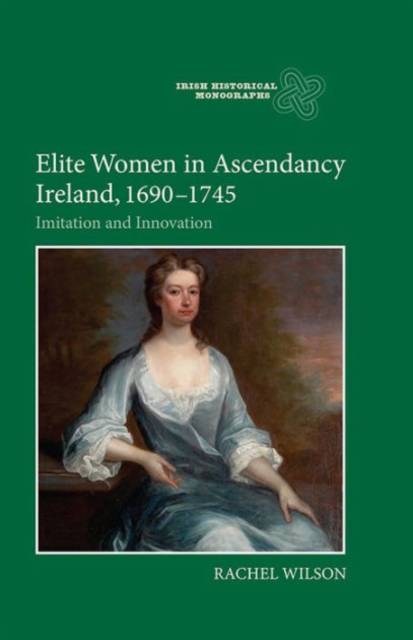
Bedankt voor het vertrouwen het afgelopen jaar! Om jou te bedanken bieden we GRATIS verzending (in België) aan op alles gedurende de hele maand januari.
- Afhalen na 1 uur in een winkel met voorraad
- In januari gratis thuislevering in België
- Ruim aanbod met 7 miljoen producten
Bedankt voor het vertrouwen het afgelopen jaar! Om jou te bedanken bieden we GRATIS verzending (in België) aan op alles gedurende de hele maand januari.
- Afhalen na 1 uur in een winkel met voorraad
- In januari gratis thuislevering in België
- Ruim aanbod met 7 miljoen producten
Zoeken
€ 177,45
+ 354 punten
Omschrijving
The late seventeenth and early eighteenth century was a period of great social and political change within Ireland, as the Protestant Ascendancy gained control of the country, aided by the English government and aristocracy, with whom the ruling class in Ireland mixed through marriage and travel. The resulting Anglo-Irish elite, with its distinct transnational identity, differed markedly from the preceding Irish elite, but, at the same time, because of its Irish dimension, was very different also from the contemporary English and Scottish upper classes. Women played key roles in this Anglo-Irish elite, and the nature of the Protestant Ascendancy can only be completely understood by considering women's roles fully. This book provides a thorough examination of the role of women in Ascendancy Ireland. It discusses marriage, family and social life; explores women's roles in economic and political life and in charitable activities; and places Irish elite women of this period in their wider historiographical context. The book is based on extensive original research, including among the papers of aristocratic families in Ireland and Britain, and provides a wealth of detail on elite women's lives in this period. Rachel Wilson completed her doctorate in modern history at Queen's University, Belfast.
Specificaties
Betrokkenen
- Auteur(s):
- Uitgeverij:
Inhoud
- Aantal bladzijden:
- 222
- Taal:
- Engels
- Reeks:
- Reeksnummer:
- nr. 14
Eigenschappen
- Productcode (EAN):
- 9781783270392
- Verschijningsdatum:
- 17/09/2015
- Uitvoering:
- Hardcover
- Formaat:
- Genaaid
- Afmetingen:
- 156 mm x 234 mm
- Gewicht:
- 489 g

Alleen bij Standaard Boekhandel
+ 354 punten op je klantenkaart van Standaard Boekhandel
Beoordelingen
We publiceren alleen reviews die voldoen aan de voorwaarden voor reviews. Bekijk onze voorwaarden voor reviews.









